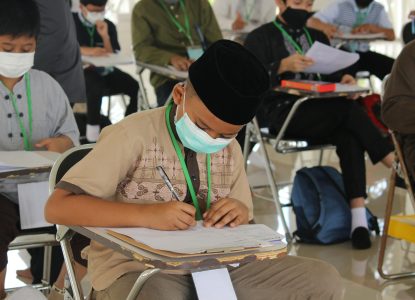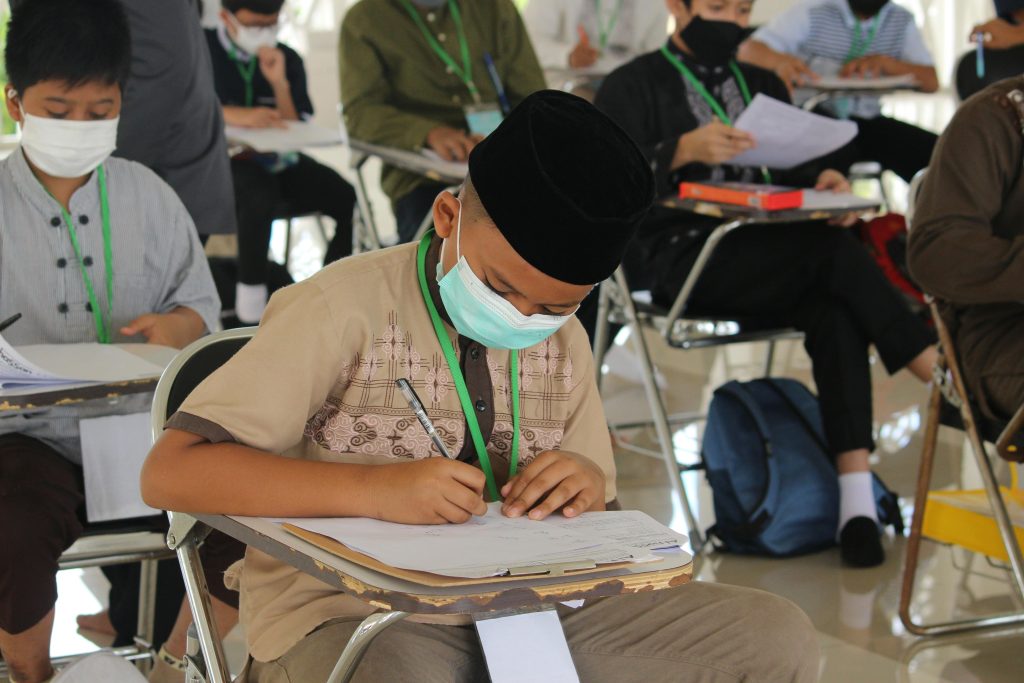By JoAnne Wadsworth, Communications Consultant, G20 Interfaith Forum
— —
As the fifth and final installment in a series of webinars examining the G20 Interfaith Forum’s core priorities leading up to the G20 Brazil Summit, this session brought together leading experts to explore innovative approaches to building religious literacy and social cohesion through education. Coming at a crucial time in global affairs, with the upcoming G20 Social Summit and Leaders Summit in Brazil, the discussion highlighted successful educational initiatives and strategies for fostering interfaith understanding in various cultural contexts.
The webinar, moderated by W. Cole Durham, Jr., President of the G20 Interfaith Association, featured distinguished speakers: Thomas Banchoff, Vice President for Global Engagement at Georgetown University and Director of the Berkley Center; Matius Ho, Executive Director of the Leimena Institute in Indonesia; Maria Lucia Uribe Torres, Executive Director of Arigatou International Geneva; and Rodrigo Vitorino Souza Alves, Professor of Law at the Federal University of Uberlândia and leader of the Brazilian Center of Studies in Law and Religion.
Universities as Catalysts for Social Cohesion
Thomas Banchoff, Vice President for Global Engagement at Georgetown University and director of the Berkley Center, opened the discussion by addressing the critical role of universities in promoting social cohesion. He emphasized how universities, while often seen primarily as vehicles for personal advancement, are vital institutions within civil society that can foster open dialogue and debate across religious and cultural divides.
Banchoff shared Georgetown’s experience with the Global Citizenship Curriculum Project, a collaborative initiative across the international network of Jesuit universities. This innovative program connects over 2,000 students and 150 professors across 23 countries, combining local context with global engagement through both virtual and in-person exchanges. The program exemplifies how universities can counteract polarization and promote meaningful dialogue across cultural and religious boundaries.
“Universities are vital institutions within civil society, places for open dialogue and debate, for research and teaching, for building and sharing knowledge that can advance solutions to the global challenges we face.”
Building Cross-Cultural Religious Literacy in Indonesia
Matius Ho, Executive Director of the Leimena Institute in Indonesia, presented their groundbreaking Cross-Cultural Religious Literacy (CCRL) program. This initiative has trained over 9,000 teachers across 58 classes since 2021, focusing on three core competencies: personal religious understanding, comparative religious knowledge, and interfaith collaboration.
The program combines online learning with practical experience, including visits to different religious sites and the development of specialized lesson plans that integrate religious literacy principles into various subjects. Ho highlighted successful cases where Christian and Islamic schools have collaborated in unprecedented ways, demonstrating the program’s effectiveness in breaking down barriers between religious communities.
“Through collaboration, we grow our respect for one another while maintaining our distinctiveness and differences. This is how we build trust beyond mere dialogue.”

Learning to Live Together: A Global Education Initiative
Maria Lucia Uribe Torres, Executive Director of Arigatou International Geneva, presented their “Learning to Live Together” program, which has been translated into 13 languages and implemented in over 40 countries. The program is built on four main principles: affirming human dignity, respecting others regardless of differences, developing empathy, and fostering reconciliation.
Torres emphasized that their approach goes beyond traditional religious education, focusing on ethics as an attitude rather than a set of dogmas. The program has been particularly successful in engaging ministries of education in six countries – Kenya, Nepal, Indonesia, Bangladesh, Mauritius, and El Salvador – to influence national education systems and teacher training programs.
“Ethics is conceived as a matter of attitude rather than a set of dogmas or teachings. It’s an approach to seeing the other, connecting with the other, and relating to the wider neighbor and to life itself.”
Religious Education in Brazil’s G20 Context
Rodrigo Vitorino Souza Alves provided valuable insights into Brazil’s G20 presidency and its innovative G20 Social initiative. He highlighted three key priorities in education: enhancing the status of education professionals, sharing resources for sustainable development education, and organizing exhibitions of best practices in school-community engagement.
Alves emphasized the growing importance of religious literacy in Latin America, where religious engagement continues to increase despite secularization trends. He detailed his center’s collaboration with the Brazilian Ministry of Education to develop materials for public servants, focusing on promoting freedom, equality, and mutual respect in educational settings.
“Religion is very important in the world, and education cannot close its eyes to this fact. It must include somehow the perspectives from religious communities and from the interfaith sector.”
Key Questions from Q&A
- How can educational initiatives achieve greater impact through government engagement?
- What strategies can help address the global shortage of trained teachers in religious literacy?
- How can successful programs be effectively scaled across different cultural contexts?
- What role should universities play in preparing future educators for religious literacy instruction?
Key Takeaways
- The critical need for trained teachers who can effectively handle religious literacy education
- The importance of government partnerships in scaling educational initiatives
- The value of combining local context with global perspectives
- The necessity of moving beyond dialogue to active collaboration
- The role of early intervention in building lasting social cohesion
- The importance of integrating religious literacy into existing educational frameworks
- The potential of universities as spaces for fostering interfaith understanding
— —
JoAnne Wadsworth is a Communications Consultant for the G20 Interfaith Forum Association and Editor of the Viewpoints Blog



